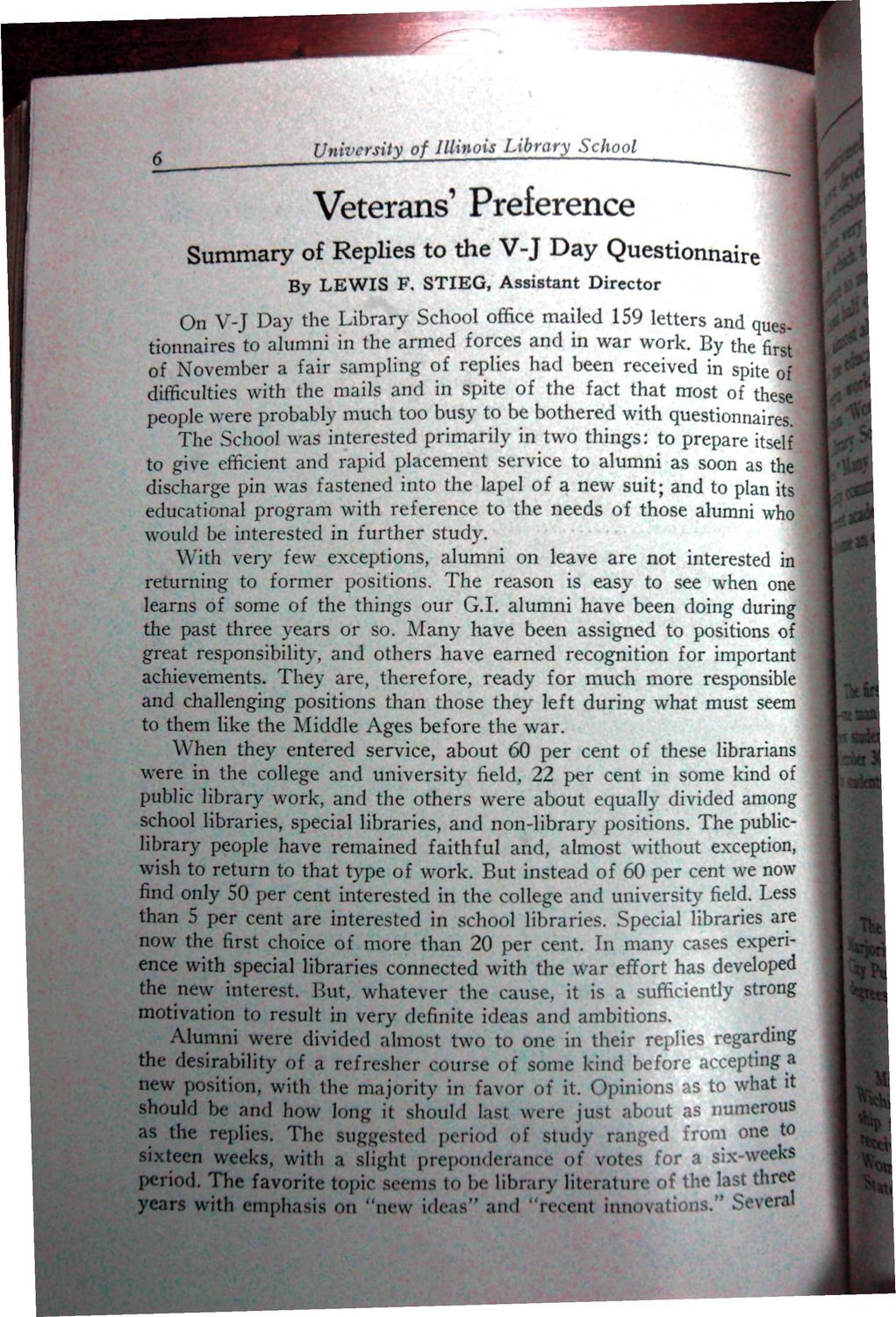| |
| |
Caption: UI Library School Alumni Newsletter - 37
This is a reduced-resolution page image for fast online browsing.

EXTRACTED TEXT FROM PAGE:
6 University of Illinois Library School A Veterans' Preference Summary of Replies to the V-J Day Questionnaire By LEWIS F. STIEG, Assistant Director On V-J Day the Library School office mailed 159 letters and questionnaires to alumni in the armed forces and in war work. By the first of November a fair sampling of replies had been received in spite of difficulties with the mails and in spite of the fact that most of these people were probably much too busy to be bothered with questionnaires. The School was interested primarily in two things: to prepare itself to give efficient and rapid placement service to alumni as soon as the discharge pin was fastened into the lapel of a new suit; and to plan its educational program with reference to the needs of those alumni who would be interested in further study. With very few exceptions, alumni on leave are not interested in returning to former positions. The reason is easy to see when one learns of some of the things our G.I. alumni have been doing during the past three years or so. Many have been assigned to positions of great responsibility, and others have earned recognition for important achievements. They are, therefore, ready for much more responsible and challenging positions than those they left during what must seem to them like the Middle Ages before the war. When they entered service, about 60 per cent of these librarians were in the college and university field, 22 per cent in some kind of public library work, and the others were about equally divided among school libraries, special libraries, and non-library positions. The publiclibrary people have remained faithful and, almost without exception, wish to return to that type of work. But instead of 60 per cent we now find only 50 per cent interested in the college and university field. Less than 5 per cent are interested in school libraries. Special libraries are now the first choice of more than 20 per cent. In many cases experience with special libraries connected with the war effort has developed the new interest. But, whatever the cause, it is a sufficiently strong motivation to result in very definite ideas and ambitions. Alumni were divided almost two to one in their replies regarding the desirability of a refresher course of some kind before accepting a new position, with the majority in favor of it. Opinions as to what it should be and how long it should last were just about as numerous t a2 & ' * ttf< efa! m 4 is the replies. The suggested period of study ranged from one to sixteen weeks, with a slight preponderance of votes for a six-weeks period. The favorite topic seems to be library literature of the last three 1 years with emphasis on "new ideas" and "recent innovations/ Several \ \
| |